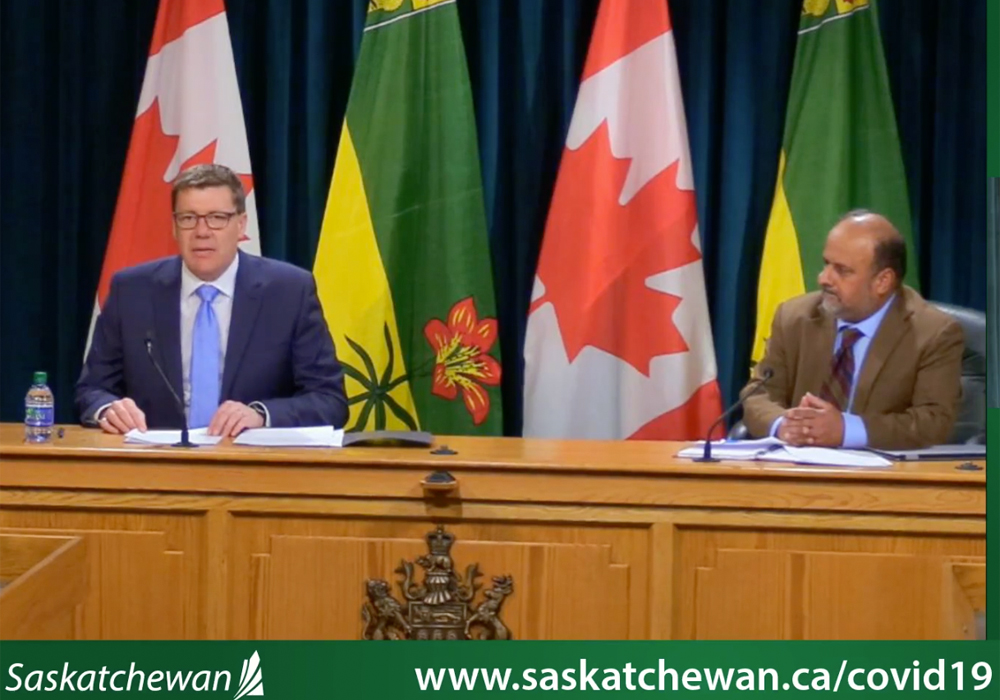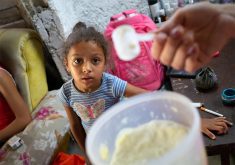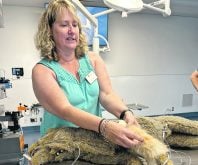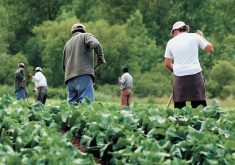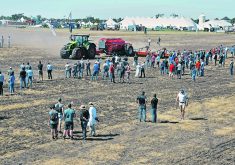Cases of COVID-19 continue to rise throughout Canada and around the world even as governments closed borders and restricted movement.
On the Prairies, Alberta is hardest hit as of March 23, with 301 cases and one death. Forty-two new cases were announced since March 22, as many as 24 of them potentially from community transmission.
Saskatchewan had 66 cases and Manitoba, 20, with neither recording a fatality.
Prime minister Justin Trudeau urged Canadians Monday to stay home.
“Enough is enough,” he said in response to social media posts of people who weren’t staying at least two metres apart or self-isolating if they had travelled internationally. “Go home and stay home.”
Read Also

Farming Smarter receives financial boost from Alberta government for potato research
Farming Smarter near Lethbridge got a boost to its research equipment, thanks to the Alberta government’s increase in funding for research associations.
Trudeau did not rule out imposing the Emergency Act to further restrict people’s movements.
He was meeting with the premiers by conference call later Monday.
Saskatchewan premier Scott Moe said he would suggest a more aligned response to the pandemic as different provinces have imposed different measures and people are confused.
For example, in Saskatchewan gatherings are limited to less than 25 people, unless two-metre distancing is possible, while in Manitoba the limit is 50.
To the people who seem to think they’re invincible: You’re not. So go home and stay home. You’re not just putting yourself at risk, you’re putting others at risk too – nurses and doctors, grocery store workers, your grandparents, and so many others. #StayAtHomeSaveLives
— Justin Trudeau (@JustinTrudeau) March 23, 2020
Moe said there are quite likely more restrictions coming.
So far, the cases in Saskatchewan have been travel-related. Only a couple of investigations were outstanding.
But chief medical health officer Dr. Saqib Shahab said even though large events are no longer happening, and schools and many businesses are closed, people should remain vigilant about keeping their distance and following proper protocol.
“We are at a critical point now,” he said. “We still do not have any evidence of community transmission.”
Of the 66 cases in Saskatchewan, at least 11 were related to a curling bonspiel in Edmonton attended by 22 health care professionals from Saskatchewan.
Further to that bonspiel, Alberta chief medical officer Deena Hinshaw said 11 of 47 Alberta Health Care workers who attended have tested positive. Many of them are doctors, some of whom went to work early last week before notification of potential virus transmission. Patients of those doctors have all been contacted, she said.
In Saskatchewan, 30 cases of the virus are in Saskatoon, 20 in Regina, three in the north, seven in central regions and five in the south.
Two of the cases are in the age category of five to 19 and 61 percent of the cases are males.
In Manitoba, all the cases are travel-related. On Monday, chief public health officer Dr. Brent Roussin advised Manitobans to cancel or postpone any non-essential travel, including within Canada.
Commercial transport of goods and services, workers who must travel from neighbouring provinces to work in Manitoba or normal personal travel in border communities are exempt.
Manitoba cases are concentrated in Winnipeg, at 16. There are two in Interlake-Eastern and two in Southern Health regions.
All the provinces have extensive information and self-assessment tools on their websites.
People are reminded that if they have travelled internationally they must self-isolate in their homes for at least 14 days. If they have symptoms, they should remain indoors.
Shahab said he recommends people don’t visit others in person even if they can maintain the two-metre separation.
Overall, Canada had 1,432 positive cases as of March 23 plus 42 probable cases. Twenty people have died; half of them were in British Columbia.
The World Health Organization warned that the pandemic was continuing to accelerate, with nearly 335,000 confirmed cases in 190 countries. Nearly 15,000 people have died.
Contact karen.briere@producer.com




